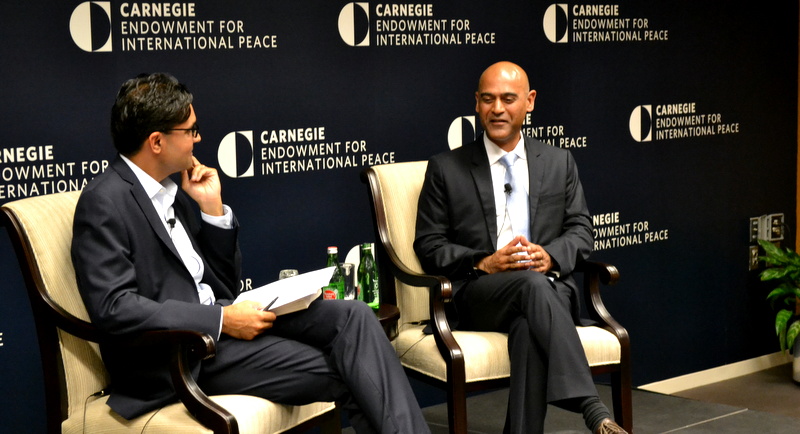Registration
You will receive an email confirming your registration.
At their formation in 1947, India and Pakistan had more in common with each other, and shared more economic and cultural links than any other two nations on earth. But the vicious Hindu-Muslim riots that broke out after the British withdrawal and the partition of the subcontinent—and the series of intrigues, misunderstandings, and miscalculations that followed—locked the two nations into a rivalry that persists nearly seventy years later.
A new book by Nisid Hajari, Midnight’s Furies: The Deadly Legacy of India’s Partition , takes a fresh look at how Partition created not just a physical boundary, but also a psychological border between these two states. Hajari discussed his book, described by Ahmed Rashid in the New York Review of Books as “a superb and highly readable account of not just the mayhem, but the political machinations that preceded Partition.” Carnegie’s Milan Vaishnav moderated. A reception followed.
Nisid Hajari
Nisid Hajari is the Asia editor for Bloomberg View. Previously, he spent a decade at Newsweek magazine as Asia editor, foreign editor, and co-editor.
Milan Vaishnav
Milan Vaishnav is an associate in the South Asia Program at the Carnegie Endowment for International Peace, where he works on the political economy of India.
